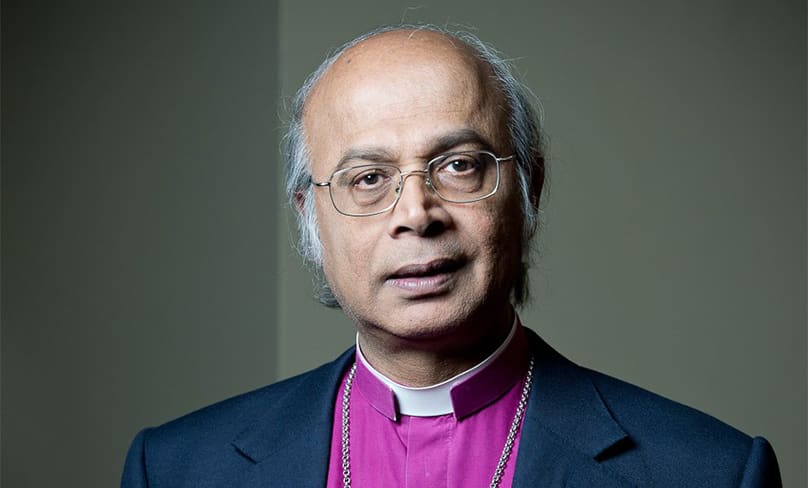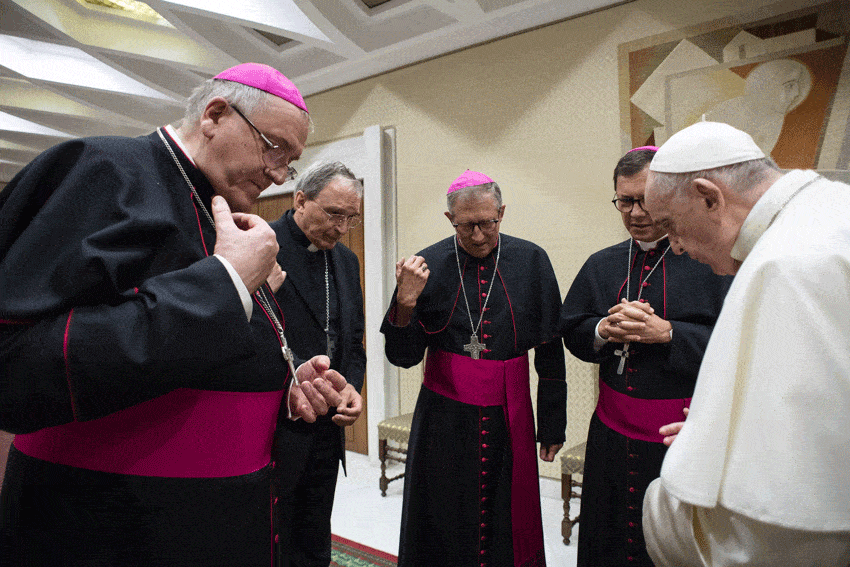
Two events took place in October which expressed and revealed something of the fundamental crises facing the Church in the modern world.
The first was the release of the French report into the extent of abuse in the Church in that country over many decades, the second was the conversion of an Anglican bishop to the Catholic Church.
The two, as it were, expressed both the darkness and the light which continually revolve around the Church throughout its history.
One expressed the reality of evil and willing human participation in the will of a malignant entity who hates human beings because we are made in the image and likeness of God.
The other revealed the timeless love of God for human beings, the love of Jesus for His Church and the never-ending action and effects of grace which wins hearts and minds to our divine lover.
“Interestingly, the numerous reports now compiled into abuse in the life of the modern Church tell us something important as well: they collectively remind us that merely nominal membership of the Church means nothing at all.”
Assuming that the French report’s methodology and reporting remain essentially unchallenged, the numbers contained in the report were staggering: from 1950 to 2020, the number of clerical victims of abuse was estimated to be about 216,000.
Adding in abuse committed by Catholic Church employees, the estimated number rose to 330,000. If the figures are accurate they remind us of a lesson which should never be forgotten: how much devastation just one small group of corrupt individuals – clerical and lay – can wreak.
It is harm that’s difficult to adequately describe, first in the lives of victims scarred for life, and then the wider effects which dismay and dishearten Catholics and contribute to the massive levels of cynicism about the Church and the Gospel at a global level.
Interestingly, the numerous reports now compiled into abuse in the life of the modern Church tell us something important as well: they collectively remind us that merely nominal membership of the Church means nothing at all.
Being baptised Catholic is no guarantee of anything. At a sociological level, we can speculate that in modernity the Catholic Church has fallen into a hole which might generally be described in many places as having become no different to the rest of the world – huge numbers of Catholics have become indistinguishable from modern paganism.

The only protection against this is total faith in Jesus and His Church and its teaching authority, with everything for the daily conduct of our lives that this entails.
If the picture regarding abuse is one of darkness, the conversion of former Anglican Bishop Michael Nazir-Ali to the Catholic faith last week is one of light, which simultaneously reminds us in the gathering darkness that Jesus never abandons His Church and accepts everyone who seeks to open his or her heart to Him. Mr Nazir-Ali’s decision to seek reception into the Church founded by Christ was a stunning moment.
Significantly, Mr Nazir-Ali was no Anglo-Catholic barely distinguishable from Roman Catholicism. Instead, he was widely recognised as a key leader of the evangelical Protestant wing of the Anglican Communion usually openly hostile to Catholicism, and had spearheaded the campaign to hold the line within Anglicanism against its continual caving-in to cultural Marxism and moral relativism.
His conversion was described by former Anglican Bishop and Chaplain to Queen Elizabeth II (and now Catholic layman) Gavin Ashenden as being of “nuclear” significance.
In effect, Ashenden noted, Michael Nazir-Ali was turning his back on the protest movement he had founded within the Anglican church and declaring that the issues which led to schism in the Church created by the Reformation are no longer relevant.
“There is, meanwhile, an interesting historical footnote to Michael Nazir-Ali’s conversion which Catholics will particularly appreciate: the diocese of Rochester he held as an Anglican bishop is also the same diocese held by … St John Fisher.”
In Nazir-Ali’s view, the Anglican Communion is so completely compromised by the forces of aggressive ‘progressive’ secularism that the fight to save its identify is now pointless.
In this sense, his conversion is of a similar magnitude to those of Monsignor Ronald Knox and, before him, St John Henry Newman, who also came from Anglicanism’s evangelical ‘low-church’ wing.
There is, meanwhile, an interesting historical footnote to Michael Nazir-Ali’s conversion which Catholics will particularly appreciate: the diocese of Rochester he held as an Anglican bishop is also the same diocese held by the last Catholic bishop of England, St John Fisher, beheaded by Henry VIII for not renouncing his faith.
It was impossible, on hearing the news of Bishop Nazir-Ali’s conversion, not to think of his martyred predecessor, who we are confident has been constantly praying for and interceding for him, and it was impossible to forget the wonder of the Communion of the Saints, all those who have gone before us marked with the sign of faith, a great cloud of invisible witnesses constantly urging us onwards to overcome ourselves, to be true disciples of Jesus – not counterfeits – and to strive for heaven.
